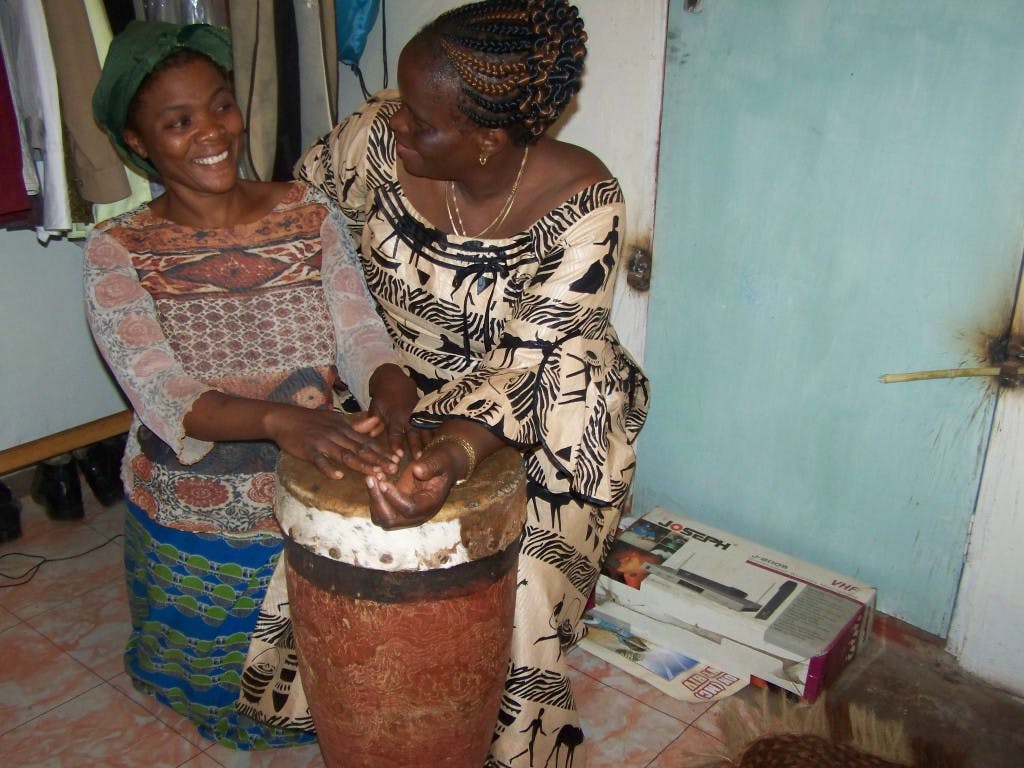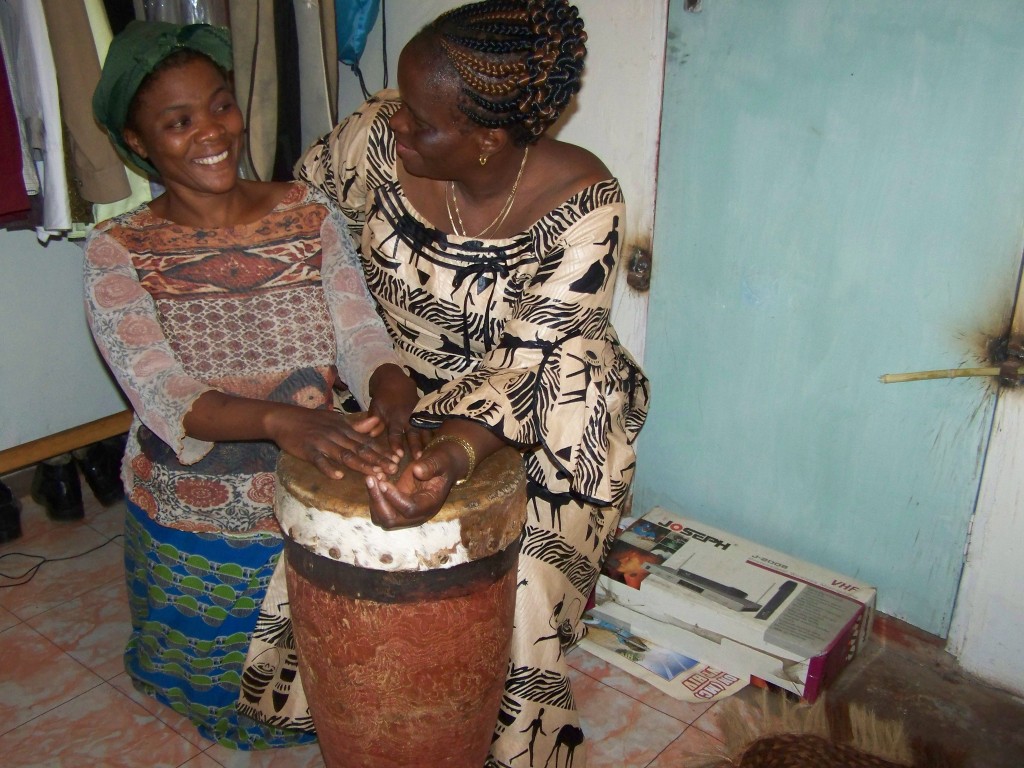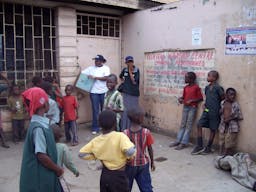Breaking the silence
Jan 21, 2015
Story


.An honor indeed when one is born and raised in a country which has enjoyed its freedom and democracy since its independence. It was on that great day when thousands of natives sang the proud and free anthem with vigor and pride as the mountains shock and the birds scattered in all directions waving their wings. But as the national anthem continued to pave its melody in the air, many of the words remained hanging in the heads of the majority of women. Could this be the unity, joy, freedom that our mothers such as mama kakasa strongly fought for? Are women the mothers of the nation strong and free when tradition denies their liberty? Or is it only the men who were liberated from the colonel rule? Free men we stand under the flag of our land as the chorus goes. Although some traditional norms are taking a new paradigm shift, however the traditional aspect which puts an emphasis on men making decisions and women inferiority continue to be firm. What then is independence when tradition imposes stiff measures on women and their rights denied. Culture has thus promoted patriarchy in a Zambian society and imposes a lot of restriction on women.
Dr Iress Phiri grew up in such a society and experienced the brutality of women due to the traditions which eroded them. Because tradition has for a long time praised male dominance, in the process, it has promoted discrimination against women; Gender based violence and gender inequality. “We need to change our cultural and promote a new culture which will be appreciated by all says Iress a traditional counselor and human rights activist dressed in a traditional Chitenge outfit”.
Silent weep........
Studies show that nearly one third of Zambian women had been subjected to violence in one of its many forms. Tradition has it that a woman has to succumb to a man, regardless of the consequences. What ever a man says is right and should be followed without question. Because the abnormal had become normal “80% of Zambian wives find it acceptable to be beaten by their husband as a form of chastisement this is According to the Zambia demographic health survey”. In many instances decision making remain to be on the side of a man from one generation to another generation as studies continue to show. This can be stretched from the political, social and economical aspects. Puberty and marriage ceremonies are very much focused on women. Some traditional practices exposes young girls at a tender age to adult sexual life, the young girls are taught different issues ranging from how to look after the house and how to treat a husband. As results most young girls are introduced to early sexuality and most of them end up dropping out of school, early marriages or unwanted pregnancies. In rural areas when young girls reach puberty, the majority are married off. Young brides to be undergo intensive traditional training on how to take good care of their husbands. As culture suggest women are encouraged never to say a word on what happens in a home especially in the bedroom.
“It was from what I saw around me that prompted me to form an organization which helps women”, says Dr Iress phiri.” Women battered by their husbands, young girls incubated in the house because they had reached puberty stage, these girls remained in the house for six months and missed school to be taught how to take care of husbands”. She explains
Husbands are traditionally the heads of families in Zambia. They have sole parental authority and make most of the important household decisions, including those regarding the use of contraception.Most women suffer the ill-treatment of their husbands and accept it as a form of punishment for their disobedience, thus most women are scared of questioning their husbands..... .. Beneath the silence of a woman lies the pain of been a woman.
Hope for change..............
Traditional counselors are well known for their support for male dominance but for Dr Iress Phiri this is not the case. She is one of the few traditional female counselors who have contributed positively to bring about change to cultures which has neglected the role and importance of women in a home, society and the nation at large. Alagizi (traditional counselor) as she is famously known raises her voice in ensuring that rights and role of women are accepted and in cooperated in the cultural context.
Words without action is literally nothing, action is the only way to change. As a woman who wants the best for every woman, Dr Phiri formed the Zambia National Traditional Counselors Association on October 14 1997. By then she was working for an institute in the heart of the capital city Lusaka. Zambia National Traditional Counselors Association is one of the few traditional organization promoting women rights and Gender equality in the nation. It received overwhelming support from women organizations such as Non Government Organisation coordinating committee “NGOCC” and food Basket. The organization promotes gender equality among the citizen and empowers women at different levels... Its formation was to help women know and understand their rights within the community. It also uses many different forms to reach out to the affected women such as conducting community sensitization to educate women on their rights and promote gender equality. They also use media- radio and television phone in programs to reach thousands of women who are victims of patriarchy. On Muvi TV which is currently airing around the global through free to air, Dr Iris phiri appears almost every Thursday on a gender based program.
In order to ensure effectiveness in their service delivery the organization uses language which their clients are able to comprehend which is manly local languages. The organization also net work with organizations such as Young Women Christian Association of Zambia (YWCA) and victim support Units. Women who are victims of abuse and violence are linked to these organizations for further assistance.
Grace is one such a woman who benefited from the Zambia traditional counselors association
“My husband used to beat me and mistreated me lamented Grace a member of the Zambia traditional counselor association. I didn’t know I had rights, it is only when I approached Dr Iress that I received help” she explained in Nyanja.
Lack of knowledge of human rights especially among women in Zambia has contributed to women failure to exercise their rights. The majority of Zambian women live in ignorance of their rights and Grace was one of them. Many women through the Zambia National Traditional Counselors have come to know and exercise their rights. Most women who exercise their rights are often considered to be rebellious and are likely to be divorced or become victims of violence; some are considered as outcast, when they refuse to adhere to certain beliefs. In cases where a woman loses her spouse through death she will be expected to be traditionally cleaned but if she refuse to undergo the cleaning process of which depending on the tribe, can be sexual cleaning or pouring of mill meal on the widow body, then she will considered as unclean and sometimes threatened to loss her mind.
On the other hand the country’s customary law puts women on a disadvantaged position and up hold the rights of a man. In the event of divorce following a legal marriage, the courts grant child custody in the best interests of the children. In the case of separation after a customary marriage, the children typically stay with the father once a husband dies women become more scared of the activities that surround them, during the mourning period, most widows are expected not to eat or talk to anyone. Property grabbing and sexual cleaning leave widows in vulnerable position such as HIV positive and poverty.
According to a 1989 law, widows have the right to inherit 20% of their husbands “property; by contrast, widowers are entitled to inherit all of their wives’ property Despite the 1989 law, most families follow customary practice in which the deceased’s family claims it is entitled to seize the estate
Studies show that since the time of the ancestors, women showed respect to men more than men showed respect to women. Women had to stay at home to look after the children and prepare food for their husbands. Even in the colonel era women and girls remained at home while men and boys went to school or work. The way a girl is brought up makes her believe that she is underneath a man and has no rights. Girls and women receive more instruction and toil more than boys and men in a house. Young girls and boys are brought up differently; to them that is the way of life. Hence To change the mindset of men who have been mentored to dominate and underrate women is not easy.
“According to story underneath IP There is need to incorporate male voice in advancing equal participation of men and women in gender equality and participation in decision making position”
The cultural system which is accepted yet not appreciated by all remains a challenge and one way that the organization is trying to break the hard stiff custom is by encouraging couple counseling. Gender is not about breaking marriage, during couple counseling, men are educated on human rights as well as women rights. They are also encouraged to treat their wives as equal partners. The need to involve men in educating women rights will contribute to the breaking of the gender inequality which exists. Men have to understand that a woman is not inhuman but human too. A couple is also encouraged to bring up their children in a way that there should be no partiality.
With Leaders’ influence, a road way to positive change........
The other focus that they group is taking is approaching the leaders in all levels of society. These include traditional leaders as well as government leaders such as chiefs and traditional counselors. Chiefs are still regarded as leaders of the land in different provinces of Zambia. These are traditional leaders who make decisions and are respected and consulted by all including government officials. These chiefs have continued to uphold traditional customs in their chiefdoms. But if these chiefs are educated about the benefits of gender equality in their communities they can be able to influence their chiefdoms and bring about a culture which does not discriminate.
We need to educate and train chiefs on gender equality because these are leaders and people who can bring change to our culture. Dr Iress says.
The National Traditional Association of Zambia works with the government in different areas and receives assistance such as transport to carry out activities in the country under culture department of the ministry of community development but Iris demands that the government should do more.
“According to Women in Law and Development in Africa (WiLDAF) in 1980 The Zambian government signed to the convention of the elimination of all forms of discrimination against women (CEDAW)” and in 1985 it began addressing problem concerning the discrimination of women in 1985 by setting up a desk for women in the ministry of finance and national planning. Meanwhile in 2000 the government adopted the National Gender policy.
We need more female members of parliament (MPs), we also need to work with women (MPs) who will understand us better and support our work emphases Iress. Government should appoint more female ministers. She adds.
In 2008, the gender activists called for the establishment of the national tribunal to fight gender discrimination and sensitize the general public, policy-markers and law enforcement officials about women rights. They also said the country needs higher numbers of women in position of power, in business as well as in politics. Zambia is a signatory to the southern Africa development community (SADC) and African union protocols is that commit to attaining 50 percent participation of men and women in political decision making. However, this stipulation is not yet reflected in the country’s political setting. Zambia has only an estimate 15% female member of parliament.
Although the National Traditional Counselors Association is expanding, the resources are limited. In future if resources allow, the organization will be able to conduct workshops and training for traditional leaders and reach out to the remotest rural areas to educate and sensitize communities on women rights. They also need to publish materials in local language which will be easy for the illiterate to comprehend.
The Zambia tradition counselor association since its formation has expanded to different provinces of Zambia including the copper belt, choma, chipata and has 172 branches headed by women. 200,000 women have benefited from the program. Dr Iress Phiri has also opened a community school which helps children especially young girls attain education in George compound.
In order to combat the gender inequality and traditional customs which underrate women, there is need for government to support tradition organizations working to change and remove certain cultures which discriminate women. Such organizations as Zambia National Traditional Counselors Association uses the traditional strategy to help both men and women understand the rights of women. It is also a call to international donors to look in this direction because once knowledge is imparted in chiefs, traditional leaders, change is coming.
As the traditions takes its new paradigm shift and the national anthem paves its sweet melody in the air. With a non discrimination culture, the wish of Dr Iress Phiri and every vulnerable Zambian woman is to sing loud and sure, all one, strong and free with vigor and pride.
This article is part of a writing assignment for Voices of Our Future, which is providing rigorous web 2.0 and new media training for 31 emerging women leaders. We are speaking out for social change from some of the most forgotten corners of the world. Meet Us.




